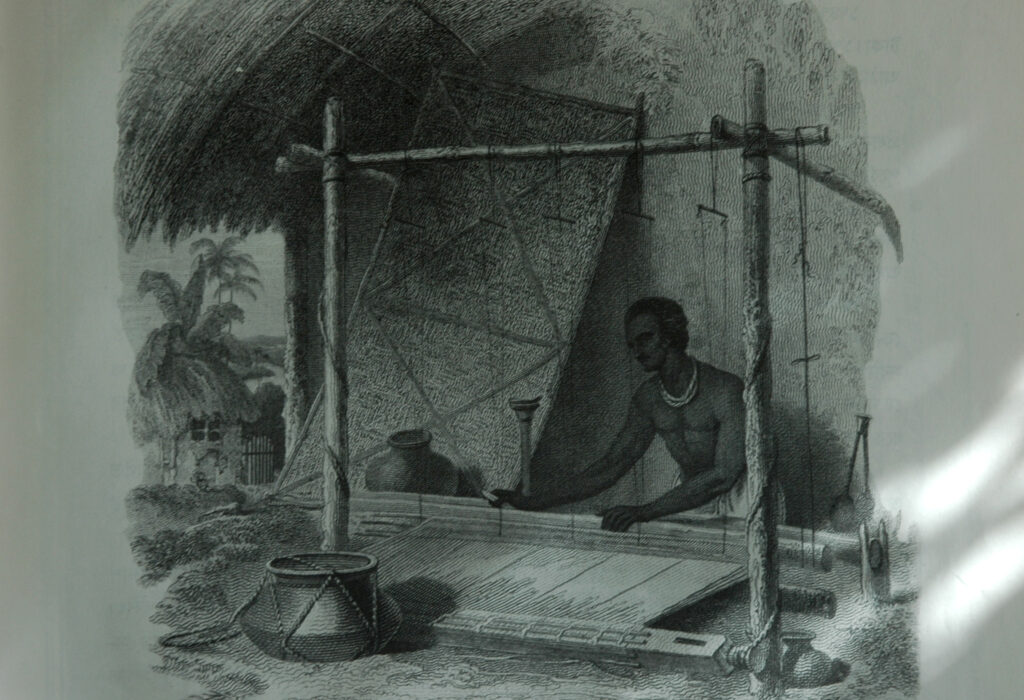Did the British, under the East India Company’s rule, cut off Bengal weavers’ hands or thumbs and tongues to destroy the famous Bengal textile industry, particularly the weaving of the muslin fabrics?

Since I was young I heard people – family members, teachers, community leaders, friends, media and so on – talking about how the British cut off the hands, thumbs and tongues of Bengal weavers to stop and destroy the production of Muslin, the famous textiles of Bengal. Hands or thumbs chopping off was allegedly designed to prevent weavers from undertaking weaving and the cutting off of tongues were said to have been to prevent the weavers from passing on the knowledge of weaving through words of mouth.
I used to believe in this story when I was young. However, as time went on I started to realise that no one has ever provided any evidence in support of this claim. Later, when I took an interest in the British East India Company and their trade with and rule of Bengal and India in general, I never came across any written evidence in this regards. My brief research on the East India Company did not unearth any evidence to support this view. However, many Bengalis continue to state and assert that the British cut off the hands or thumbs and tongues of Bengal weavers to destroy the famous muslin textiles industry.
Just think for a moment what gigantic planning and executing task it would have been for the British to undertake. There were hundreds of thousands of weavers, scattered around vast tracts of lands within Bengal, stretching from Dhaka to several places in present-day West Bengal. To achieve this aim, it would have been necessary to develop meticulous plans, allocate budgets, employ hundreds of people, produce detailed timetables, undertake expeditions, report back, monitor, chase after weavers trying to escape, etc.
Also, it would have been necessary to make plans for any potentials rebellions by weavers and their communities, long term medical needs of those who would have lost their hands/thumbs and tongues and for the many families who would have experienced a loss of income from those who would have been made disabled, unable to work, and needed care and support. This would have also affected negatively the British revenue collection through taxation from the country.
The ‘hands/thumbs and tongues cutting-off project’ would have taken many years to complete and cost a huge amount of money. Do you think that a private company, set up to generate profit, with a board of directors, would come up with such a ridiculous project or support something like this dreamt up by someone?
Leaving the moral issue on the side for a moment do you think that the Company would have approved the spending of a huge sum of money to undertake this project? The idea that the British undertook this action is really absurd and even a little critical thinking would have meant realising how ridiculous has been the claim. It will be really interesting to find out where this idea originated from and why nobody ever questioned its authenticity or tried to find any evidence in its support.
If indeed the British did undertake this task and cut off the hands/thumbs and tongues of hundreds of thousands of Bengal weavers in order destroy the industry then there would have been reports, decisions, evaluations, etc. of the operations preserved in some British institutions and within Bengal, there would have been oral histories of this taking places in different villages and towns, etc.
If those who originated this claim only meant that the British action was only directed against a handful of weavers as a warning for everyone else to stop the production of the Bengal muslin textiles industry, then how would that have stopped weavers everywhere in Bengal to stop weaving the muslin textiles? Also, even if the British did cut off the hands/thumbs and tongues of a handful of weavers then it would still be wrong to say that they did this to destroy the Bengal muslin industry as a handful cannot lead to the destruction of the whole thing.
If I carry on analysing this story it will become more and more ridiculous. I will end here and encourage others to undertake further research with passion, objectivity and dedication to develop a balanced and evidence-based understanding and account of history, particularly about how the famous Bengal textiles industry that supplied a variety of textiles, including the finest cotton textiles in the world, known as muslin, for more than one thousand years and earned such fame, appreciation and respect everywhere.
Muslin, I understand, was one of the most valuable trades from India. I seriously wonder who, on earth, would have wanted to put a stop to it?
This is an interesting topic to discuss. However, I was expecting you will present some evidence to answer your question: Did British cut off the hands, thumbs and tongues of Bengal weavers. And it is true that destroying the textile industry of India would have led to a loss of tax revenue for the British empire. However, one should also keep in mind that the time period when this is alleged to happen was the same when Britain was trying to develop its own textile industry in Lancashire, Manchester and Leeds and they wanted to play a larger role in international trade. So, it was i their interest to kill the comparative advantage other countries like India had in textile trade. We have to go deeper into this discussion than just be subjective about it.